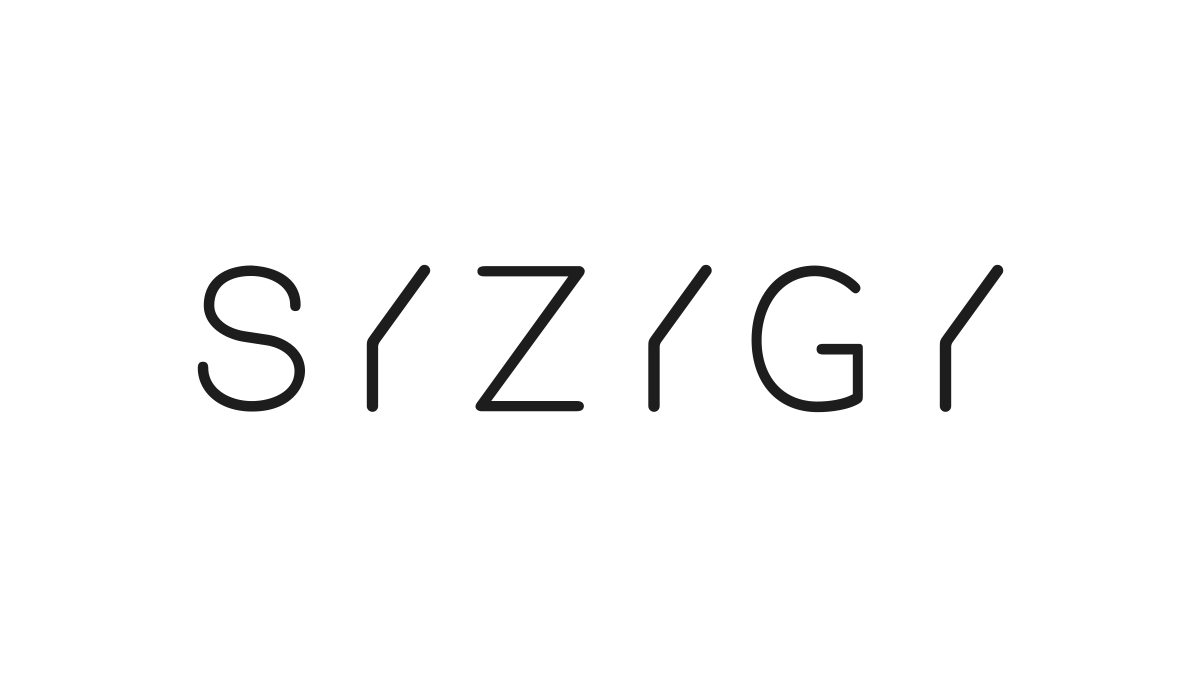When our colleagues at SYZYGY Warsaw wanted to develop even more innovative and sustainable solutions for clients, they transformed their work model into a Teal organisation.
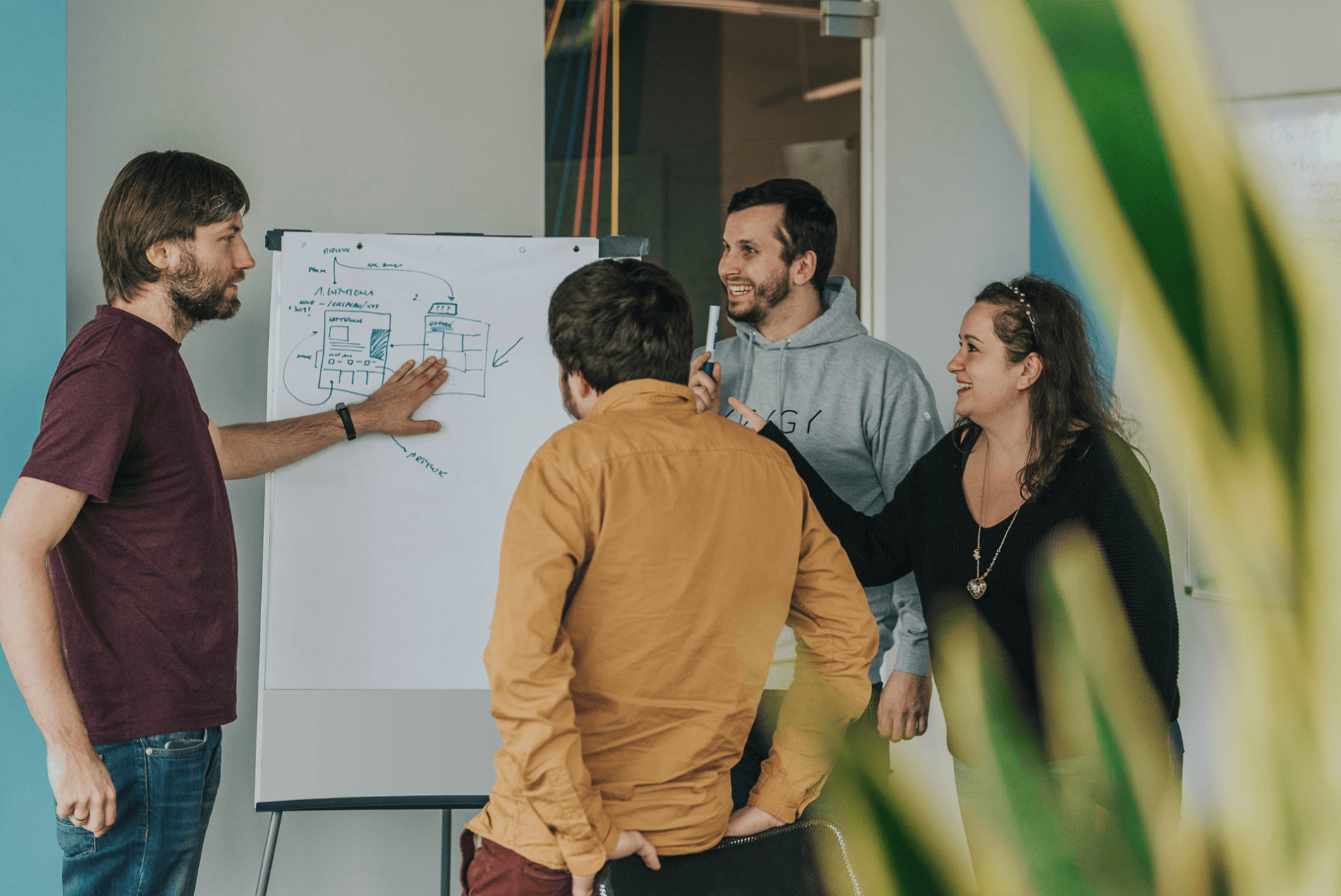
Teal organisation for maximising client success
A few years ago, our office in Warsaw restructured its work with clients according to the three key pillars of the Teal model: self-management, wholeness and evolutionary purpose. These factors have underpinned its success ever since. One example is the development of an app for iTaxi, a leading ride-sharing service in Poland.

Self-management: agility for faster decision-making
All the colleagues in the Warsaw office and the iTaxi employees worked as a team without traditional hierarchies. They managed themselves and worked closely together, with everyone involved taking responsibility for the app project. They all had more freedom to make decisions, which meant they were able to respond more quickly to demands and take an agile approach to developing new features or improving existing ones in a smooth, efficient development process. Updates were also provided without delay. This flexibility has always been crucial in project work.
Wholeness: mutual trust promotes creativity
Wholeness is another success factor and core concept of the Teal organisation. The Warsaw-based designers and developers worked closely with the iTaxi team on a technical level and also helped to create an open and trusting working atmosphere. They were able to harness their full potential when developing the app and to jointly devise creative and user-centred solutions that improved the booking experience for iTaxi customers.
Evolutionary purpose: adaptability and innovation
The Teal organisation worked efficiently and effectively: not only is the new iTaxi app faster and more user-friendly, it also sets new standards in the ride-sharing industry. Gawel Boguta, CTO of iTaxi, emphasised reliability, the high quality of the work and compliance with the budget as being particularly crucial during the collaboration.

With their commitment to the Teal model, our Warsaw-based colleagues are demonstrating their enthusiasm for transparent collaboration, agility and a culture focused on shared objectives and autonomy in order to unlock the full potential of teams and clients and ensure long-term success.
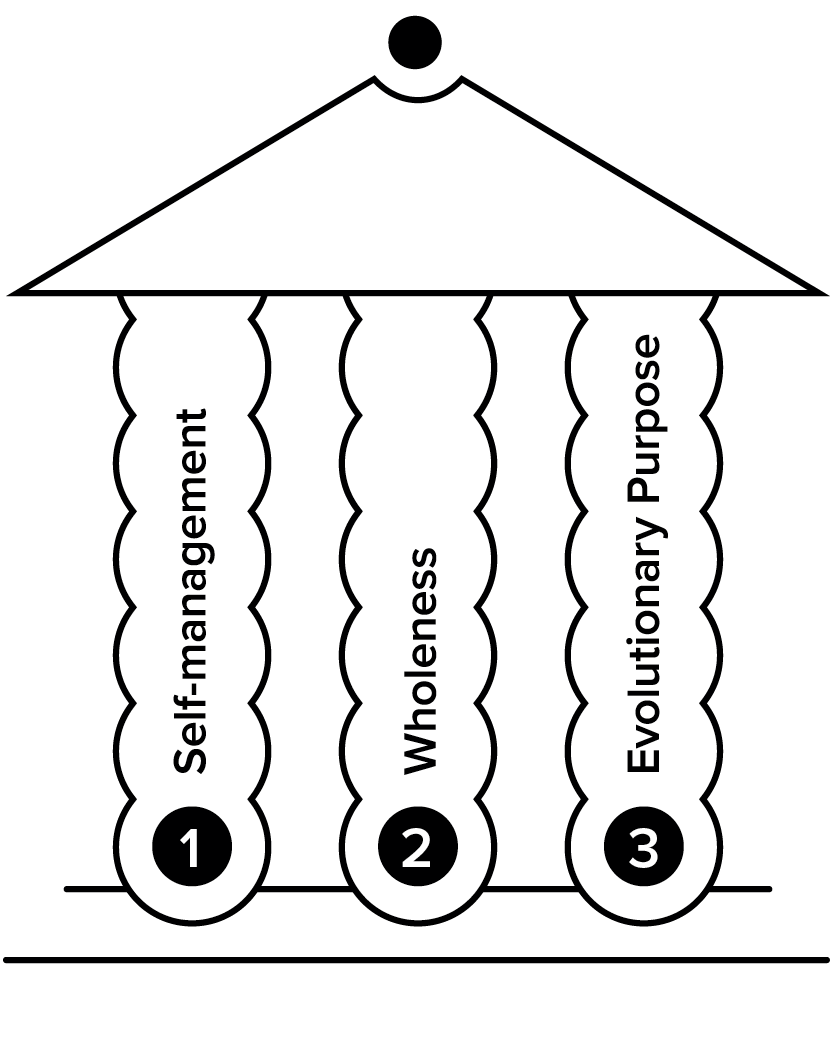
The three pillars of Teal
Self-management
Our teams manage their own operations, which enables them to respond directly to our customers’ needs. This independence leads to faster decisions, greater personal responsibility and fewer delays due to approval processes.
Wholeness
We create a working environment in which our employees can be themselves. We encourage them to bring their personal authenticity into their professional roles. This fosters creativity, strengthens trust and supports collaboration – and thus leads to innovative and effective solutions for our customers.
Evolutionary purpose
Without the restrictions of traditional management structures, our teams can flexibly adapt to new challenges and seize opportunities. This enables us to continuously develop new and better ways to offer our customers more value.
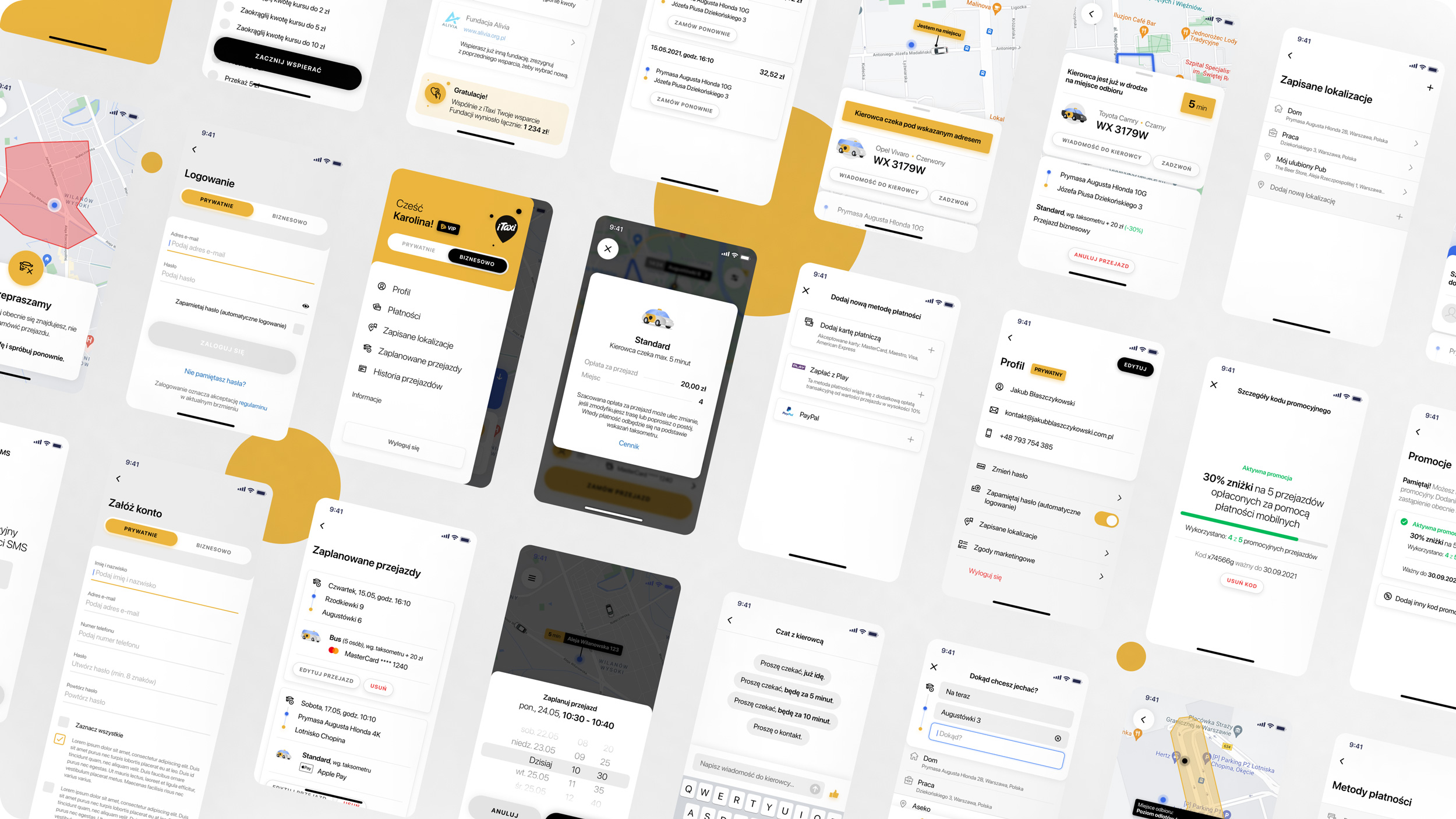
Added value for clients and users
The Teal organisation worked efficiently and effectively: not only is the new iTaxi app faster and more user-friendly, it also sets new standards in the ride-sharing industry. Gawel Boguta, CTO of iTaxi, emphasised reliability, the high quality of the work and compliance with the budget as being particularly crucial during the collaboration.
Teal organisation as a model for success
The Teal principles – self-management, wholeness and evolutionary purpose – enabled the iTaxi project team to achieve more. The organisational system was crucial for the success of iTaxi and also had a positive impact on all teamwork in Warsaw. It enabled the development of more innovative, adaptable and sustainable solutions that are tailored to the real-world needs of clients and the markets. Transformative values were also generated through the efficient joint working approach. These had a positive impact on clients, teams and the future of work in our Polish office.
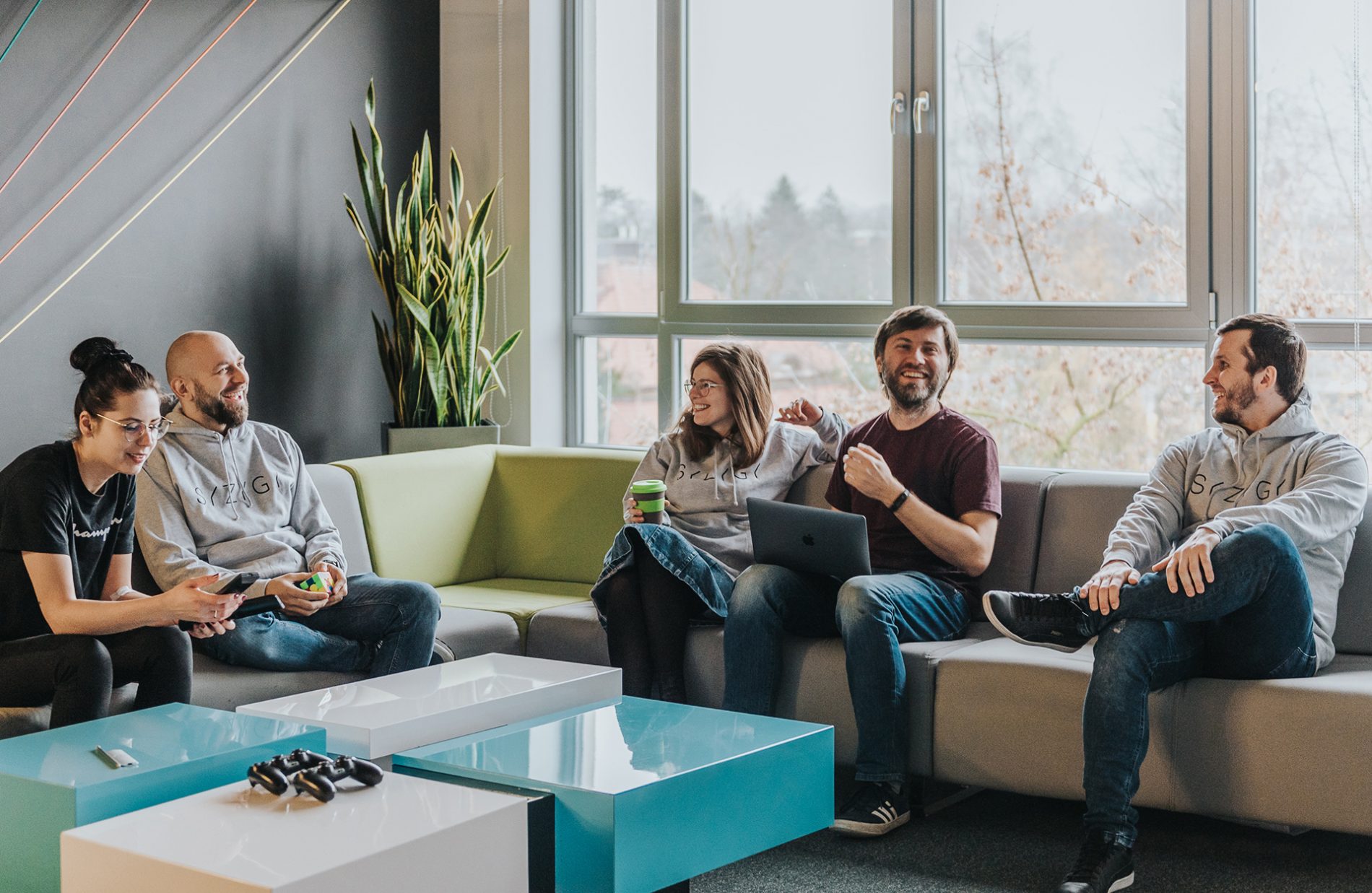
For our colleagues at SYZYGY Warsaw, the introduction of the Teal model meant more than just cultural change. It was a strategic step that helped to strengthen the teams and encourage greater transparency and adaptability.
Collaboration was also redefined and a new standard set for future client partnerships.

